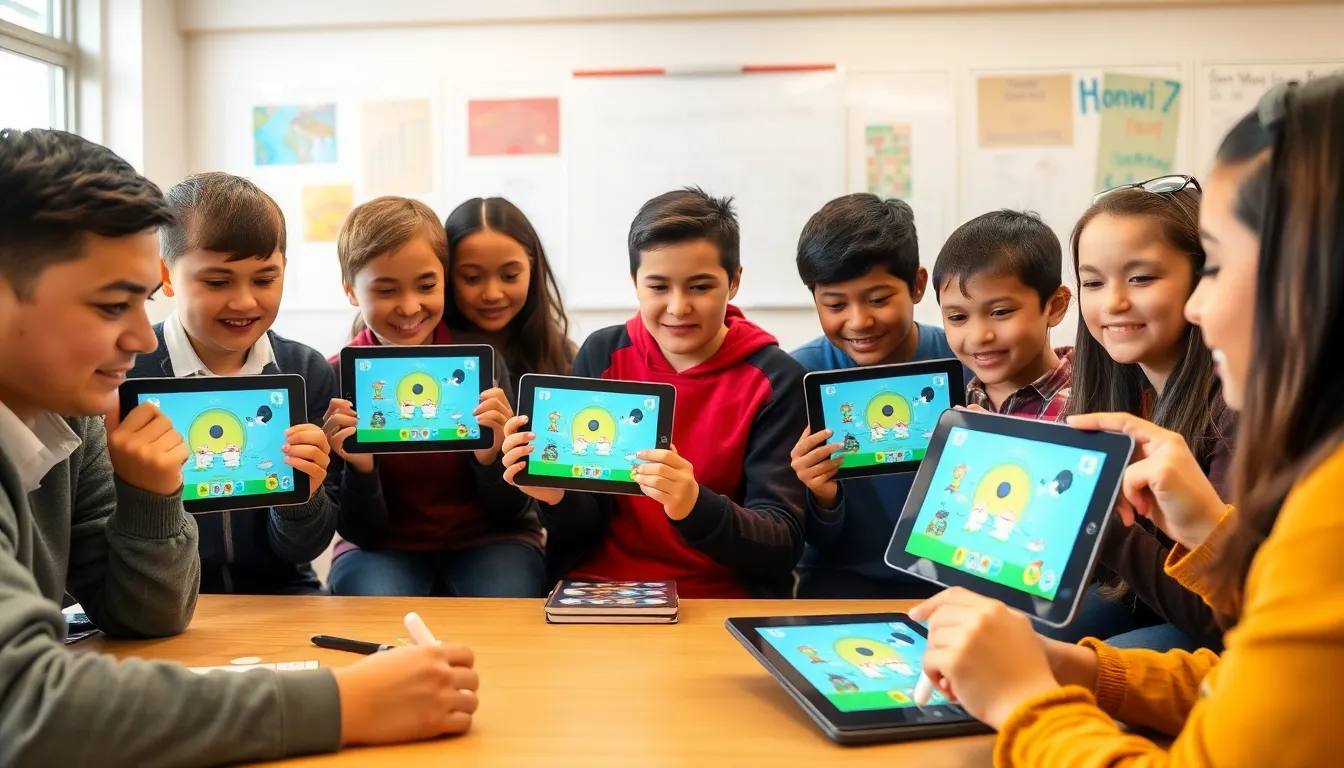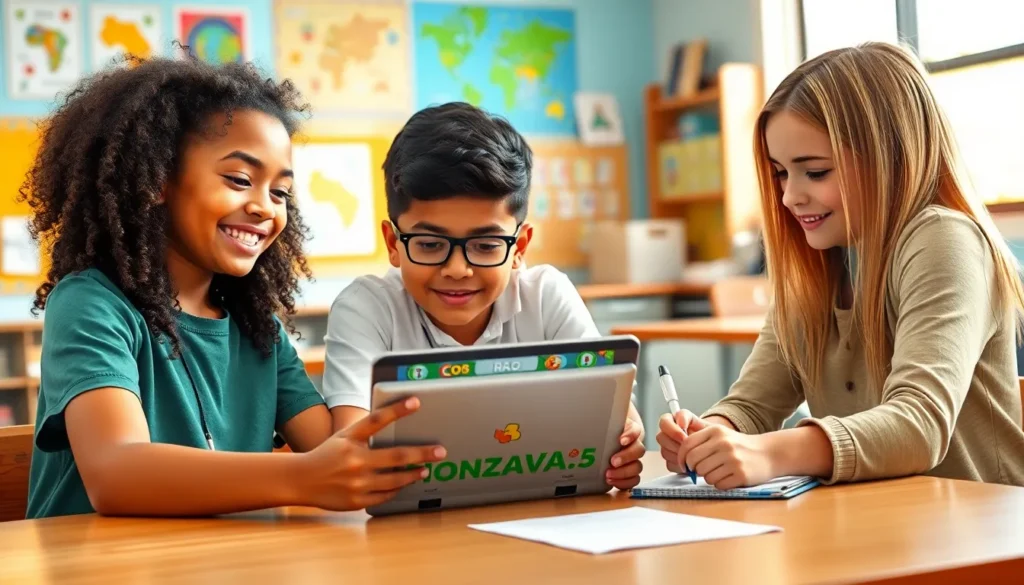In a world where students juggle textbooks and endless assignments, finding a fun escape can feel like searching for a unicorn. Enter Honzava5, a game that promises not just entertainment but also a sprinkle of educational value. But does it live up to the hype?
Imagine a game that’s not only engaging but could also sharpen critical thinking skills faster than a caffeine-fueled all-nighter. With its vibrant graphics and interactive challenges, Honzava5 might just be the secret weapon students didn’t know they needed. Is it a distraction or a clever way to learn? Let’s dive into the pixelated realm of Honzava5 and uncover whether this game is the hero students deserve or just another time-sucking villain.
Is Honzava5 Game Good for Students
Honzava5 presents an innovative blend of entertainment and education, appealing to students managing heavy workloads. Designed for interactive play, it engages users with complex problem-solving tasks that stimulate critical thinking. Players navigate through various levels, each offering unique challenges that require strategic planning and quick decision-making.
The game’s structure incorporates elements from popular educational tools, ensuring that learning is woven into the gameplay. Narratives and scenarios within Honzava5 promote analytical thinking as players must assess situations, predict outcomes, and adapt their strategies accordingly.
Feedback from educators highlights the game’s potential in developing cognitive skills. Research indicates that games like Honzava5 can lead to improved mental flexibility and problem-solving capabilities. Players often report heightened excitement and motivation while exploring intricate storylines and competing against peers, reinforcing collaborative learning.
Accessibility also plays a significant role. Available on multiple platforms, the game allows for flexibility in how and when students engage. Self-paced play encourages personal responsibility in mastering concepts without the pressure of traditional academic settings.
Occupying the space between leisure and learning, Honzava5 retains a fun atmosphere while challenging users intellectually. The potential benefits suggest this game could serve as a valuable educational resource in a student’s toolkit.
Benefits of Honzava5 Game for Students

Honzava5 offers several benefits for students, making it a valuable educational tool. This game provides an engaging platform that enhances learning through interactive experiences.
Enhancing Problem-Solving Skills
Problem-solving skills develop as players tackle various challenges in Honzava5. Each level introduces unique scenarios that require strategic thinking and adaptability. Engaging with these tasks helps students to approach problems from different angles. Research shows games that involve complex puzzles significantly boost logical reasoning. Players often find themselves using creative methods to achieve their goals. An increase in mental resilience occurs as they navigate unexpected obstacles. Success in the game reinforces a sense of accomplishment, further encouraging problem-solving behavior in real-life situations.
Improving Critical Thinking
Critical thinking improves significantly through gameplay in Honzava5. Players analyze situations, predict outcomes, and adjust their strategies accordingly. Educators emphasize that this active engagement fosters deeper comprehension of concepts. By encountering diverse narratives, students learn to evaluate information critically. The game’s structure promotes reflection and discussion among peers, enhancing collaborative learning. An evident boost in analytical skills emerges as players assess risks and benefits during gameplay. Overall, Honzava5 effectively cultivates an environment where critical thinking thrives, promoting lifelong learning habits.
Drawbacks of Honzava5 Game for Students
Despite its educational benefits, Honzava5 presents challenges for student users. Various drawbacks include time management concerns and potential distraction, both of which merit consideration.
Time Management Concerns
Students often struggle with balancing academic responsibilities and leisure activities. Engaging gameplay may lead to excessive playtime. Maintaining focus on studies can become difficult if players lose track of time while exploring the game’s immersive worlds. Scheduling conflicts may arise as students prioritize game time over assignments or studying. This imbalance could result in declining academic performance, especially for those with tight deadlines.
Potential Distraction
Distractions commonly hinder academic performance. Honzava5, despite its educational design, may divert attention from essential study materials. Players may find themselves more drawn to the game’s challenges than to their coursework. Engaging with the game repeatedly might reduce productivity levels, leading to unfinished assignments. Competing against peers in the game can create an environment that emphasizes entertainment over academic achievement. Keeping a balance between gameplay and studying is vital to mitigate these distractions.
Alternative Educational Games
Various educational games provide engaging ways for students to learn while having fun. One prominent example is Kahoot!, which combines quizzes with friendly competition. Players respond to questions in real-time, fostering collaborative learning and reinforcing knowledge retention.
Prodigy Math stands out as another popular choice, focusing on math skills through adventure-based gameplay. Students strengthen their mathematical abilities while navigating a fantasy world filled with challenges, making the learning process enjoyable.
Scratch, a programming platform developed by MIT, allows students to learn coding fundamentals through interactive projects. Users create animations and games, promoting problem-solving and critical thinking in a creative environment.
Minecraft: Education Edition brings a unique twist to learning through a block-building platform. Educators use this game to teach subjects like science and history by creating immersive experiences that encourage exploration and teamwork.
Duolingo offers a language-learning experience through bite-sized lessons and gamified elements. Learners progress through levels by practicing vocabulary and grammar, making it easier to build language skills.
Each of these games showcases how play can be integrated into education, enhancing critical thinking and engagement. Selecting the right game can provide a balanced approach to learning, capturing students’ attention while they improve academically. Engaging in such games encourages an enjoyable learning atmosphere that complements traditional education.
Academic Responsibilities
Honzava5 stands out as a unique tool for students seeking to blend learning with entertainment. Its engaging gameplay and complex challenges foster critical thinking and problem-solving skills essential for academic success. While the game offers significant educational benefits, students must remain mindful of their time management to avoid distractions.
Balancing gameplay with academic responsibilities is crucial to harnessing Honzava5’s full potential. By integrating this game into their study routines, students can enhance their cognitive skills while still enjoying a fun and interactive experience. Ultimately, Honzava5 can serve as a valuable resource, enriching students’ learning journeys when approached with discipline and focus.



